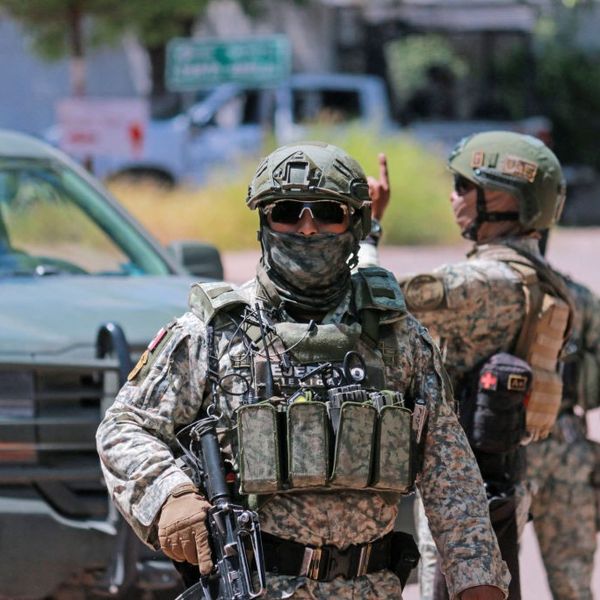How safe is America today? How safe is the world? As we mark the passage of 15 years since September 11, 2001, many surveys indicate that we humans feel pretty darn unsafe. The Chicago Council on Global Affairs recently found that 42 percent of Americans feel less safe today than they did before September 11. This number has risen 15 percentage points in the past year.
Of course, the memorials associated with this weekend's anniversary will only heighten that sense of unease. Because the attacks on September 11 were both so shocking and so devastating, they had the effect of resetting American and world perceptions about personal and global security. And the continued terrorist attacks by al Qaeda, and now ISIS, have only deepened the sense that the world is an increasingly dangerous place.
I think it's important, as we think about the tragedy of September 11, to correct this perception. When we succumb to panic, despair, and—yes—exaggeration, we're reacting exactly the way terror strategists want us to react. Terrorist organizations count on attacks having outsized impacts out of proportion to the actual damage caused. Terrorist attacks are acts of horror and theater designed to frighten their audiences for years to come.
I imagine most observers think that Europe in the last two years has suffered a record number of deaths from terrorism. According to a European-based data analytics firm, however, the number of deaths from terrorism in Europe have generally been declining since 1970. This year and last saw significant spikes, but even so, neither year ranks in the Top Ten since 1970. The worst year for fatalities in Europe was 1988, when a U.S. airliner was destroyed over Lockerbie, Scotland. Other years were almost as dreadful, particularly during the 1970s when the ETA, IRA, and Baader-Meinhoff terrorist groups ravaged Europe.
But I think this type of near-term statistical comparison isn't really the point. The question we should be asking ourselves is, how safe can we reasonably expect human society to become? I think we would all agree that, barring some breakthroughs in human genetic engineering (and I would watch that space!), we are not yet capable of a global society devoid of human-against-human violence. But have we over the millennia been making progress? The historical record says yes.
I've just finished reading Sapiens: A Brief History of Humankind by Yuval Noah Harari, an Israeli professor of history. I recommend the book to national security and international affairs practitioners, because it provides some useful context and perspective on our current concerns. Harari makes a strong case that humans have become less violent over our history. He notes, for example, that skeletons found in ancient human settlements often reveal whether our ancestors suffered violent deaths. Among 400 such skeletons found in the Danube Valley, 4.5% percent showed signs of human-against-human violence. If this number is representative of our early human communities, then they killed each other at triple the rate that we do today.
Harari goes on to note that the last seven decades have been the most peaceful in human history. In fact, in 2002, the year after September 11, more humans committed suicide than were killed by wars, acts of terrorism, and violent crime combined. Today, we suffer nine murders per year per 100,000 people; even though modern humans benefit from much more efficient ways of hurting each other, medieval Europeans killed their fellow humans at four times that rate.
None of us has the formula for determining an acceptable level of violence in human society. But we all have the capacity to keep historical events in perspective. September 11 was a tragedy, but it did not reveal the black truth at the core of the human condition. For me, the best way to honor the victims of September 11—and all the brave men and women who have fought to make us safer—is to remain hopeful about our common human destiny. I like to think that no matter what happens in the world, there is only ever one question that really matters: Do you still hope?
















